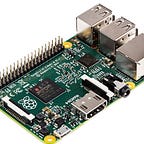The Basics of Project Planning and Management for Engineers
Introduction
Managing a project from inception to completion involves a series of well-coordinated steps. This is especially pertinent in the field of engineering, where precision and efficient execution can make or break a project. By mastering project planning and management, engineers can optimize processes, minimize risks, and deliver successful outcomes. In this article, we’ll cover the foundational elements of project planning and management to help engineers tailor these practices to their specific needs.
Project Planning
Define the Project Scope
The first step in project planning is to clearly define the project scope. This involves identifying the project’s objectives, deliverables, boundaries, and constraints. The scope should be documented in a detailed project scope statement, which serves as a guide for the entire project team.
Develop a Work Breakdown Structure (WBS)
A Work Breakdown Structure (WBS) is a hierarchical decomposition of the total scope of work to accomplish project objectives and create the deliverables. It helps in breaking down large tasks into manageable pieces, making it easier to assign responsibilities, estimate costs, and schedule tasks.
Estimate Resources and Budget
Once the WBS is in place, the next step is to estimate the resources and budget required for the project. This involves estimating labor, materials, equipment, and other resources needed to complete each task. A detailed budget plan should be created to monitor expenses and avoid cost overruns.
Create a Project Schedule
Developing a project schedule involves identifying all the tasks needed to complete the project, determining their dependencies, and sequencing them in a logical order. Gantt charts and network diagrams are commonly used tools to visualize the project schedule.
Project Management
Risk Management
Risk management is the process of identifying, analyzing, and mitigating risks that could potentially impact the project’s success. Engineers need to perform a risk assessment and develop a risk management plan that includes strategies for risk avoidance, mitigation, and contingency planning.
Communication Plan
Effective communication is critical in project management. A communication plan outlines how project information will be disseminated to stakeholders, team members, and other relevant parties. This plan should include details such as communication methods, frequency, and responsibilities.
Monitor and Control
Monitoring and controlling the project involves tracking its progress against the plan, identifying any deviations, and implementing corrective actions as needed. Key performance indicators (KPIs) and regular status reports are essential tools for effective monitoring and control.
Project Closure
The final step in project management is the project closure. This involves completing all project work, obtaining stakeholder acceptance, and conducting a post-project evaluation to capture lessons learned. Proper project closure ensures that all contractual obligations are met and that the project is formally concluded.
Summary
Project planning and management are essential skills for engineers to ensure the successful execution of projects. By defining the project scope, developing a detailed WBS, estimating resources and budget, and creating a comprehensive schedule, engineers can effectively plan their projects. Additionally, by implementing risk management, communication plans, monitoring and control procedures, and thorough project closure, engineers can manage their projects to achieve desired outcomes and avoid pitfalls.
Incorporating these foundational elements into project workflows will help engineers enhance productivity, ensure quality, and foster a collaborative environment that drives project success.
Further Reading: Check out this comprehensive guide to dive deeper into the fundamentals of project planning and management.
